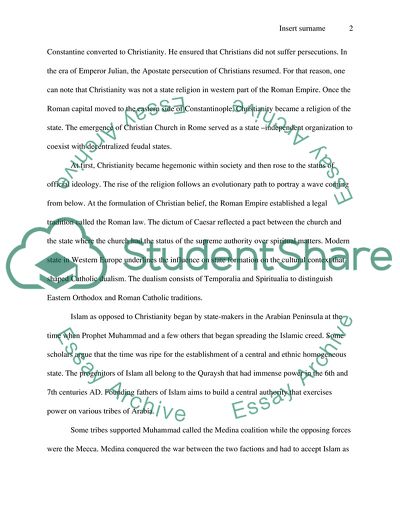Cite this document
(Differences between Islam and Christianity Article Example | Topics and Well Written Essays - 1750 words, n.d.)
Differences between Islam and Christianity Article Example | Topics and Well Written Essays - 1750 words. https://studentshare.org/religion-and-theology/1852874-differences-between-islam-and-christianity
Differences between Islam and Christianity Article Example | Topics and Well Written Essays - 1750 words. https://studentshare.org/religion-and-theology/1852874-differences-between-islam-and-christianity
(Differences Between Islam and Christianity Article Example | Topics and Well Written Essays - 1750 Words)
Differences Between Islam and Christianity Article Example | Topics and Well Written Essays - 1750 Words. https://studentshare.org/religion-and-theology/1852874-differences-between-islam-and-christianity.
Differences Between Islam and Christianity Article Example | Topics and Well Written Essays - 1750 Words. https://studentshare.org/religion-and-theology/1852874-differences-between-islam-and-christianity.
“Differences Between Islam and Christianity Article Example | Topics and Well Written Essays - 1750 Words”. https://studentshare.org/religion-and-theology/1852874-differences-between-islam-and-christianity.


